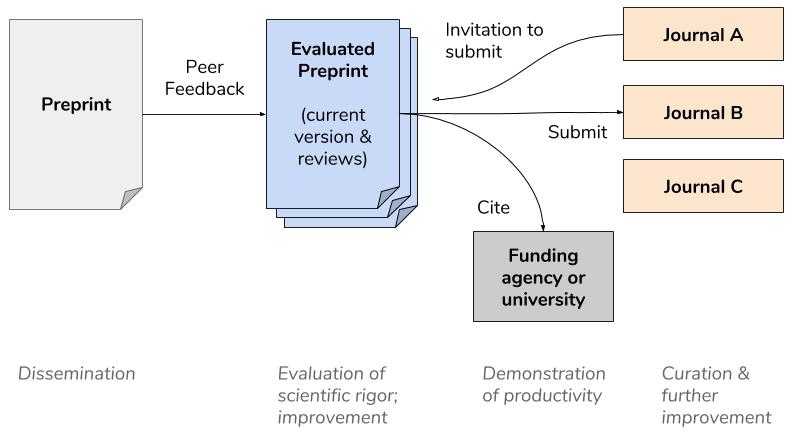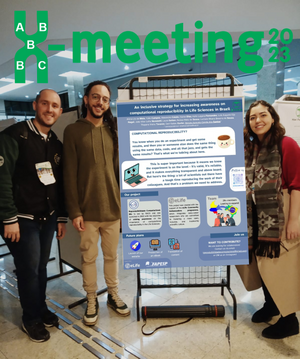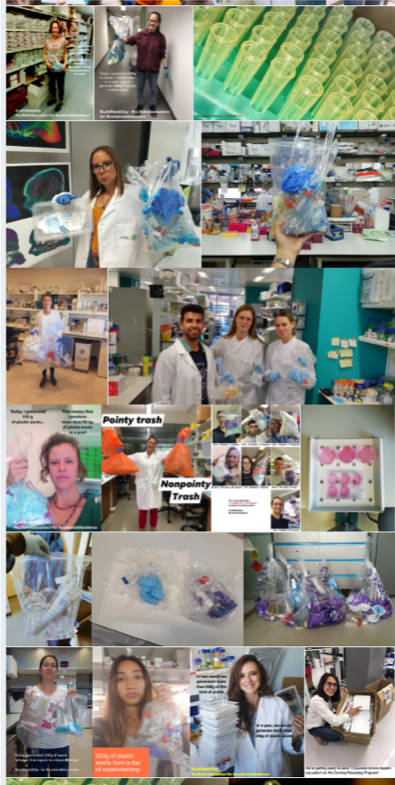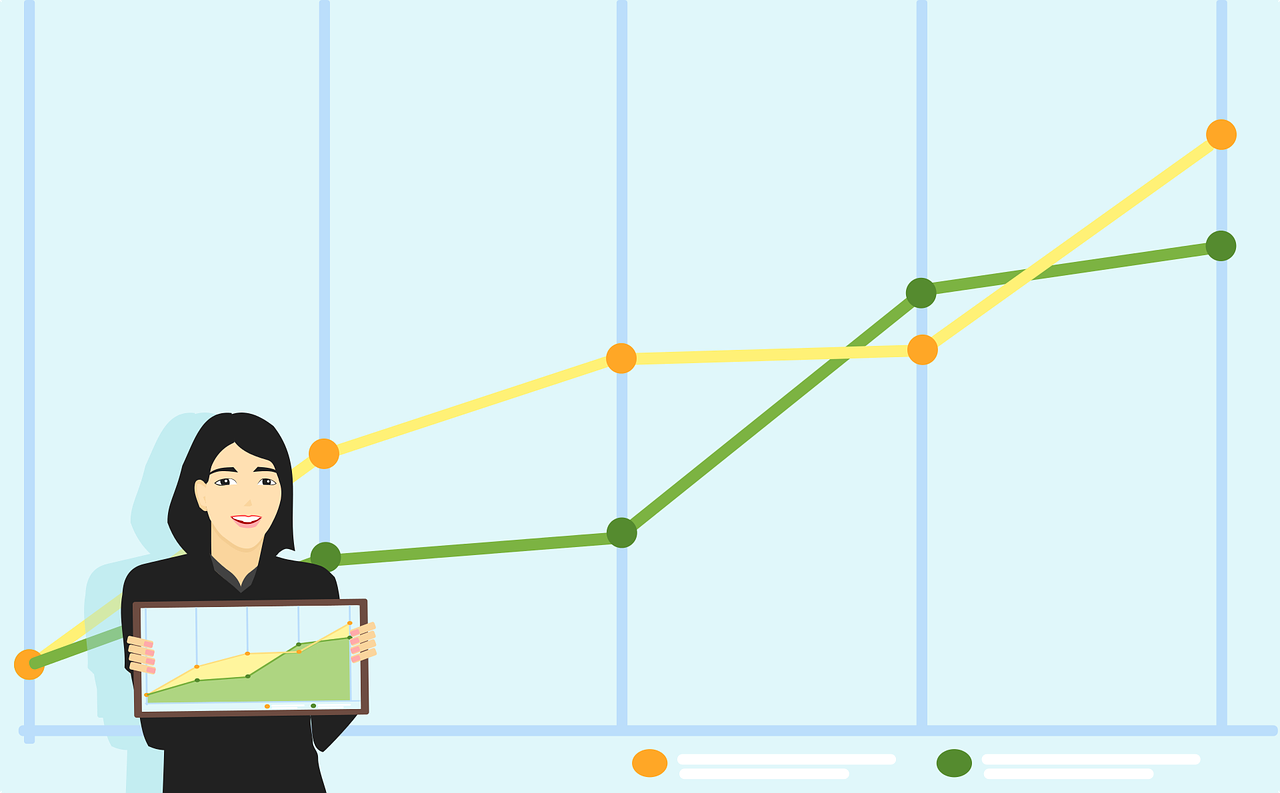eLife launched its first ambassador program last week. I have been lucky enough to be involved in coordinating these efforts and I am excited to see what the ambassadors are able to achieve. This is the first roundup post summarising progress over the past few weeks.
January 2018
Things got off to a great start with two open community calls. Chaired by eLife Early-Career Advisor Emmanuelle Vire, these provided an introduction to the program a chance to answer questions.
The call led to the establishment of regional groupings of Ambassadors, with plans for the first in person meet-up in Cambridge and more planned.
Initiative progress
Efforts to tackle reproducibility are steaming ahead. We heard from Modesto Redrejo-Rodriguez about the open-access peer-reviewed journal Bio-protocol and the extended methods sharing site Protocols.io from Nicholas Schmelling, who has set up the CyanoWorld group for standardizing methods in the cyanobacterial research community. Zuzana Hofmanova approached the issue for computational pipelines and shared information about NBIS Reproducibile Research course and the Reproducible Bioinformatics Project. Ideas for creating a collection of resources around reproducibility, reproducibility workshops and a special issue in Bio-protocol are under development and there will be a call to discuss this in the first full week of February.
Ambassadors interested in preprints have been discussing establishing journal clubs for analysis of preprints to provide feedback to authors along the model of PREreview established by Daniela Saderi and Sam Hindle. Luciane Kagohara shared her experiences about the continued need to educate and encourage researchers to adapt preprints and Carmen Lia highlighted Peer Community In as parallel initiative to provide feedback to authors.
Under highlighting funding opportunities Uschi Symmons shared a resource listing funding programs for postdocs and independent researchers developed by Dieter Lukas from the MPG in Germany. Adrian Teo raised the question of developing connections with EU groups to apply for funding and Chinmaya Sadagni, Jessie Abbate, Rintu Kutum and Aziz Khan have been discussing a way of generating a CMS-based website to collate opportunities into one place to help researchers looking for opportunities.
There has been a lot of activity around career development for researchers. Sophie Acton, Chris Toseland, Lotte de Winde and Christina Cruceanu discussed the issue of paid paternity leave as a means of addressing the gender balance in science. Margaret Brisbin, Zach Hensel and Ahmet Bakirbas debated means of exposing ECRs to a variety of career paths while Pradeep Rajasekhar shared information about the Parkville Career Forum, which raises awareness of non-academic careers. In addition regarding the question of resources to support new PIs, Matha Naganbabu shared posted on the blogs of Steve Ramirez and Prachee Avasthi.
Under peer review eLife board member Prachee Avasthi shared information about the ASAPBio proposal for a ‘Peer Feedback System’ to develop a journal agnostic review system to help speed up time to publication. Which was followed by an thought piece on the topic highlighted by Michiel Boekhout. ASAPBio are looking for feedback on the proposal so any input would be welcome.

In diversity, Elisa Floriddia pointed to a recent study indicating significant gender bias in the success of grant applications with the idea of approaching funders to address this. We heard from Jessie Au about 1000girls1000futures project to encourage and support female high-school students in STEM and Juan Quintana is exploring the possibility of creating a network of Latin American scientists to provide networking opportunities and help increase their visibility. John Burns and Zach Hensel have been influential in encouraging the expansion of the ambassador program to provide a greater geographic diversity – as a result we will be welcoming several new additions over the next week.
Finally, in regard to science communication and publishing, we heard from Emma Dorris about setting up Public Patient Involvement and Uschi Symmons about a couple of initiatives including Start Talking Science and Lil BubOME, a crowdfunding project to sequence the genome of a celebrity cat to help explain the process through blogs. Philippe Lucarelli is exploring a connection with a group of Computational Scientists in Luxembourg and David Kent shared that the biggest challenge in running his blog The Black Hole for nine years, is letting an imperfect article be published.
Upcoming
- Feb 7-8, Webcast of the ASAPBio meeting on ‘Transparency, Recognition, and Innovation in Peer Review in the Life Sciences‘ – shared by Lotte de Winde. Note: highly recommended for those interested in peer review and preprints.
- Feb 13, eLife Ambassadors meetup Cambridge. 11:00-11:30.
- Feb 17-21, eLife staff will be exhibiting at the 62nd Annual Meeting of the Biophysical Society in San Francisco, do drop by and say hello if you are attending.
What eLife Ambassadors are reading
A selection of articles and resources shared by Ambassadors on Slack
- Diversity: Sofia Araujo – Female grant applicants are equally successful when peer reviewers assess the science, but not when they assess the scientist
- Diversity: Sofia Araujo – Kindness in Science
- Open-access: Rintu Kutum – We’ve failed: Pirate black open access is trumping green and gold and we must change our approach
- Peer-review: Sonali Sengupta – 20 Cognitive Biases That Affect Your Decisions
- Reproducibility: Luciane Kagohara – The importance of being second
- Open science: Melania Zauri – Disrupting Research
From social media #eLifeAmbassadors
- Preprint journal clubs: Yasin Dagdas
- Reproducibility: Hannah Wang
- Lots of Tweets about the launch of the program
In the news
- Karolina Ditrychova – eLife Early-Career Ambassador of good practice in science
- Vivek Bhardwaj, Cristiana Cruceanu and Ahmed Khalil – 150 Ambassadors of good practices in Science
- Carlos Blondel and Sebastián Escobar – Investigador UA elegido como embajador de Sudamérica para la divulgación de las Ciencias
Other notes
Congrats to Sam Hindle on her new role at BioRxiv! Exciting times ahead
Just want to say thumbs up for all the contributions so far, apologies if I have missed something out here, and just let me know if you want me to add news next time round! We will be continuing the expand on the issues and initiatives highlighted here over the coming year.






